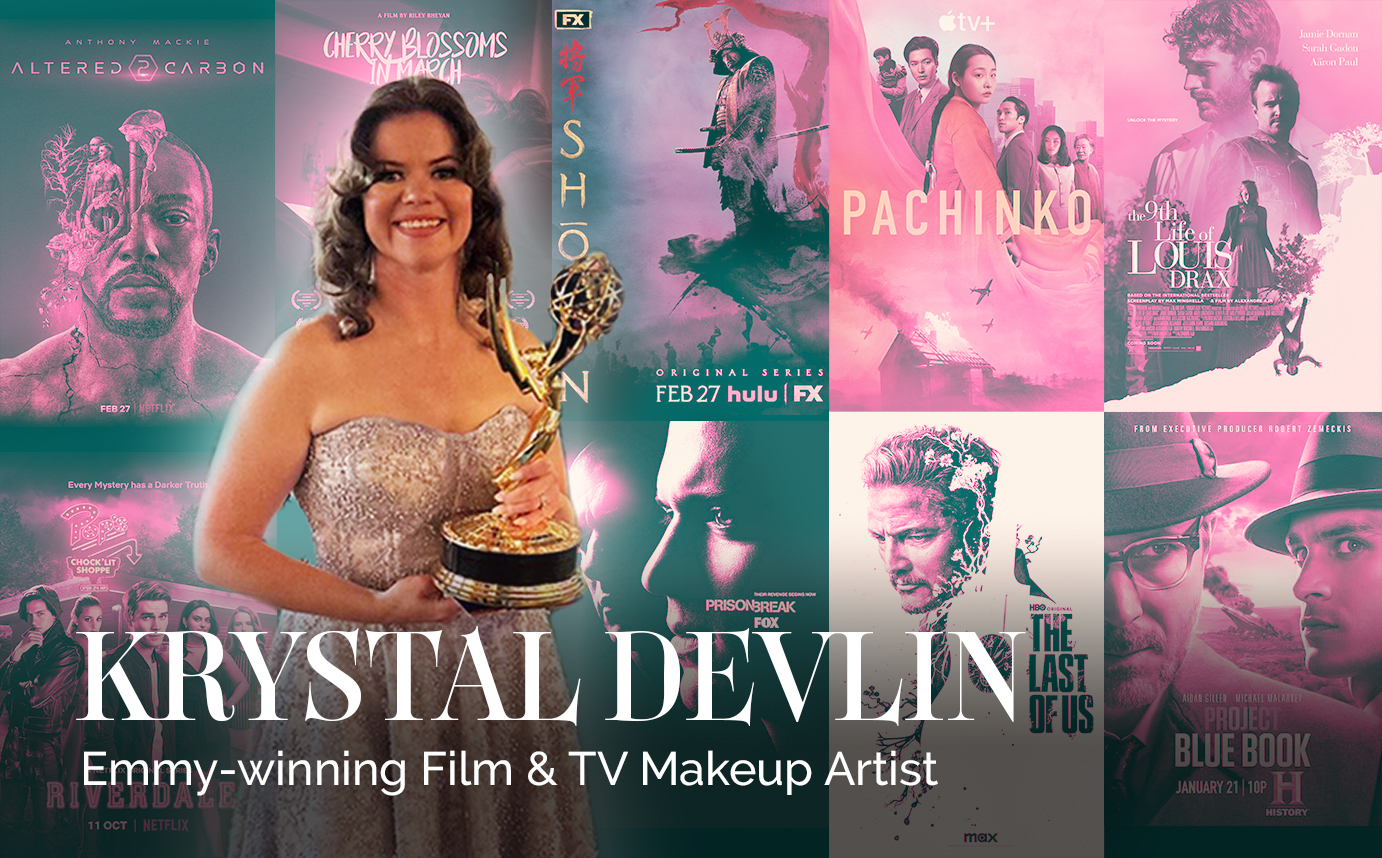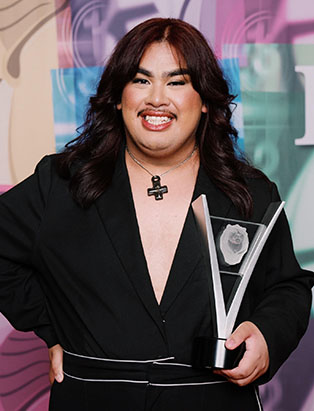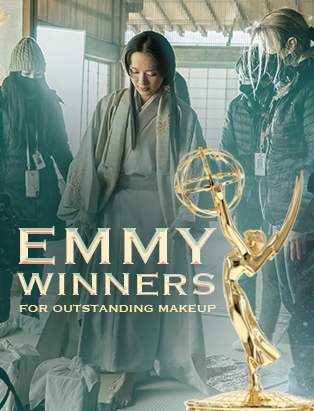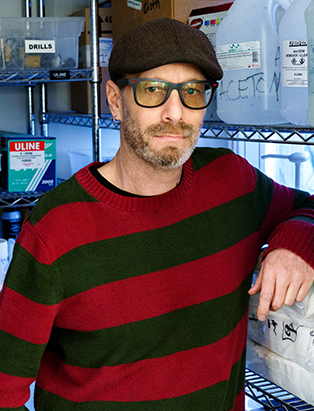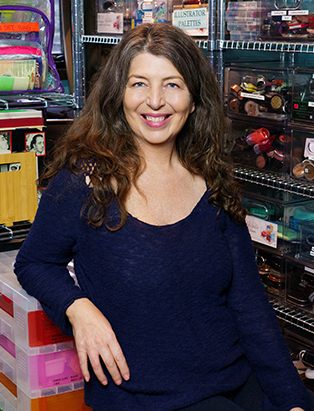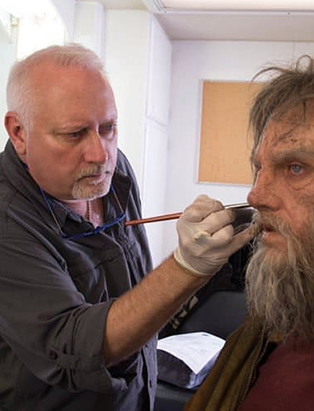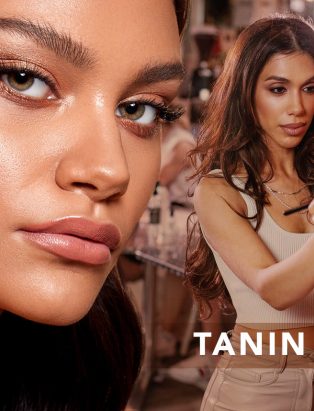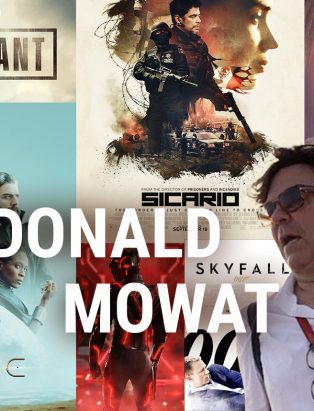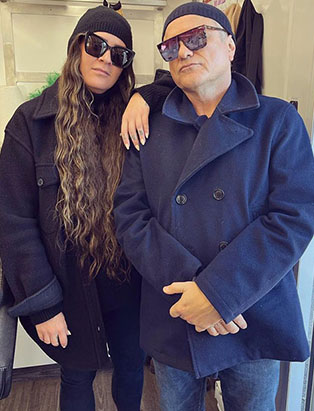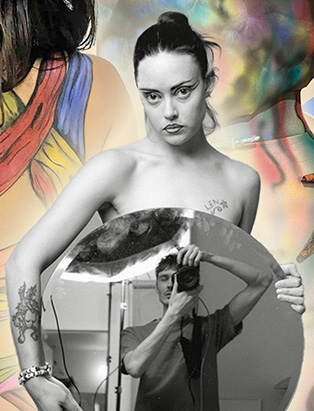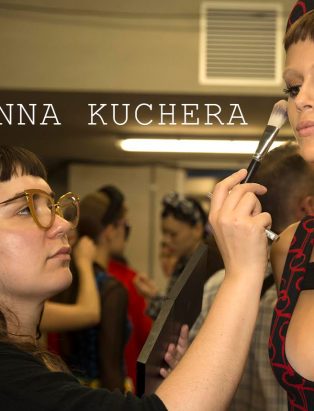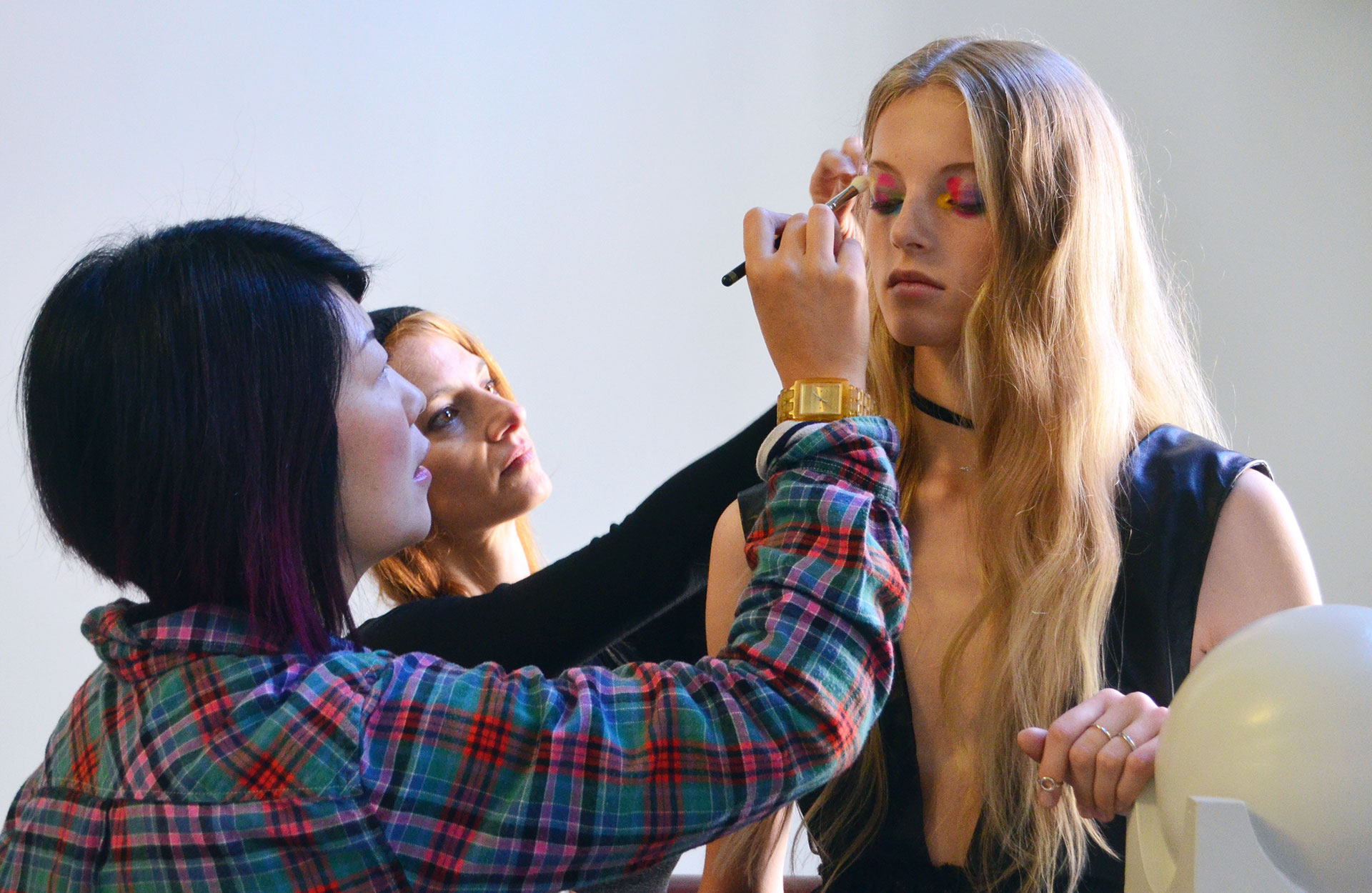Before embarking on her professional makeup artist career, Krystal Devlin worked in various service industry roles until her wedding day glowup sparked a life-changing realization. After enrolling in Blanche Macdonald’s Global Makeup Program, Krystal’s Makeup Instructor asked her to assist on a film set, and she found her true calling in Film and TV. Today, she’s a Key Makeup Artist and Head of Department (HOD) on major productions and an Emmy Award-winning Makeup Artist, with lessons to share about breaking in, standing out, and staying grounded. For anyone dreaming of a career in makeup, Krystal’s story proves that passion, grit, and the right education can take you far.
Winning an Emmy for Outstanding Makeup is a huge achievement! What was going through your mind when you found out you won for Shōgun?
I was so incredibly happy and proud of the whole team. Honestly, as I walked to the stage, all I could think was, ‘Don’t trip. Don’t step on anyone’s dress.’ Working on Shōgun was especially challenging. We worked long hours, mostly outdoors in a harsh winter, and we really pushed ourselves as makeup artists with the looks. To be recognized for something you poured everything into is an incredibly rewarding feeling.
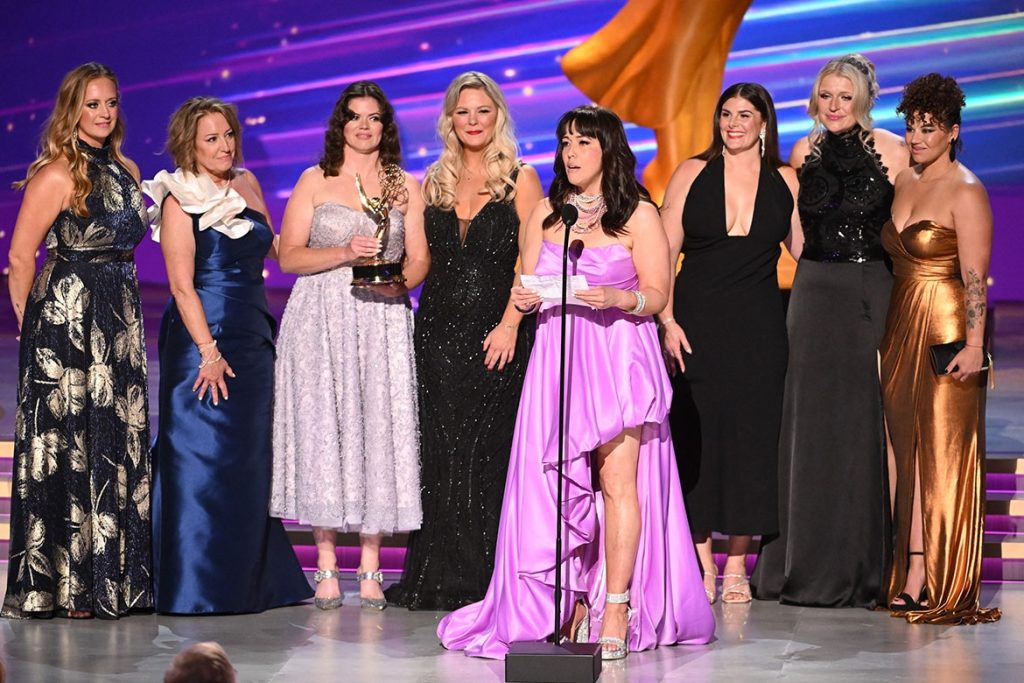
“To be recognized for something you poured everything into is an incredibly rewarding feeling.”
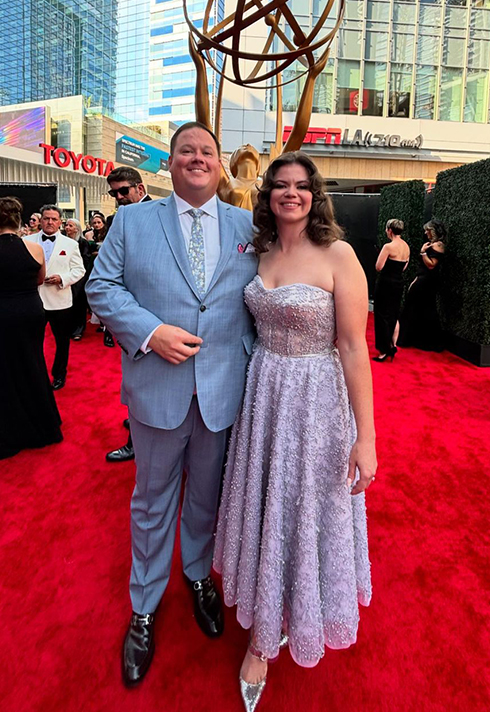
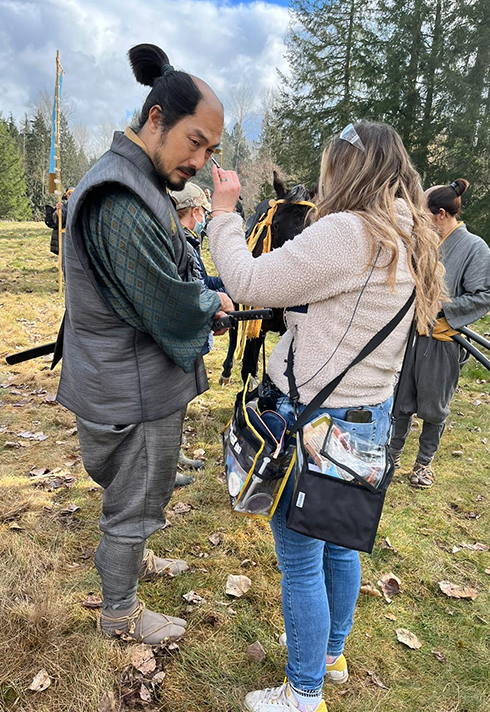
Top: The team from Shōgun accepting the award for Outstanding Period or Fantasy/Sci-fi Makeup (Non-Prosthetic) at the 76th Creative Arts Emmy Awards.
Source: https://www.emmys.com/.
Why did you decide to pursue a career in makeup? What were you doing before coming to Blanche Macdonald?
I always liked the idea of makeup, but I never thought of it as a career until I had my makeup done for my wedding. I felt so beautiful that day, and it made me want to give that same feeling to other people. I worked a lot of different jobs—barista, restaurants, hotels, residential cleaning and retail. I enjoyed doing different things, but nothing felt like a career. I’m fortunate to have had those experiences because every one of them taught me something I use today.
Why did you choose Blanche Macdonald’s Global Makeup Program? What aspects of the program stood out to you?
The quality of the teachers and having access to the Career Services team, not just while you’re studying, but even after graduating, really stood out to me.
What did you think of the program? Were there any standout lessons or moments that helped shape your career?
Out of all the makeup artist classes, I loved the fashion module most, especially learning about different styles throughout time periods. The teacher from that class, Jenna Kuchera (Global Makeup Program grad and current assistant to Dame Pat McGrath), asked me to help out on a film she was working on. Everything clicked on my first day on set. I knew I wanted to work in film.
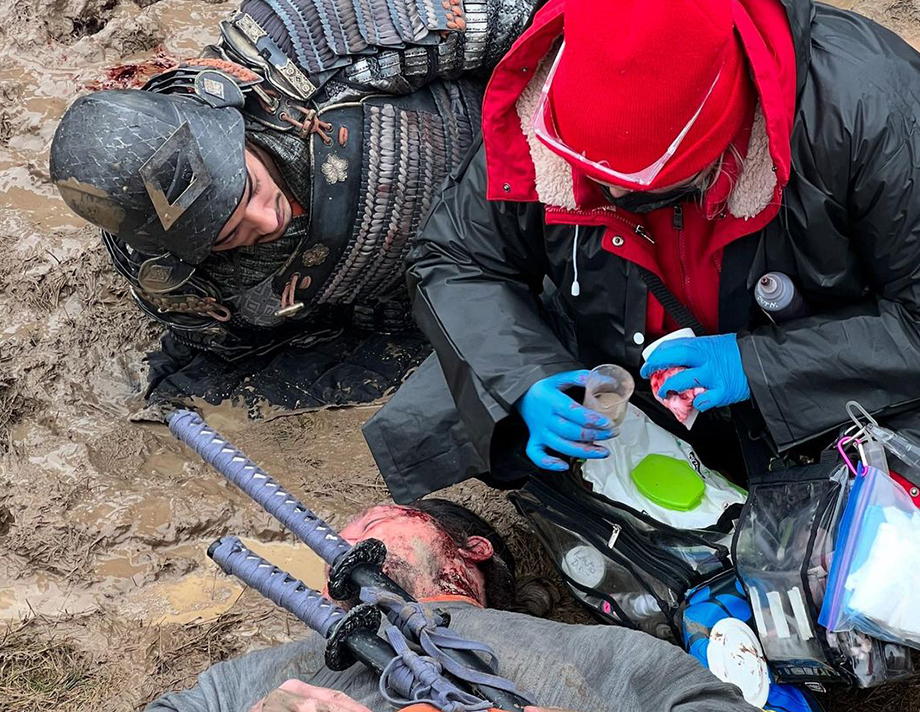
“Mentorship is so important in this industry. I was mentored by artists like Rebecca Lee, Amanda McGowan, and fellow Global Makeup grad Danielle Fowler, and hopefully, someday I’ll be mentioned by a young makeup artist in their interview!”
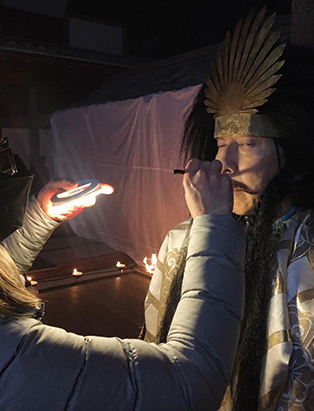
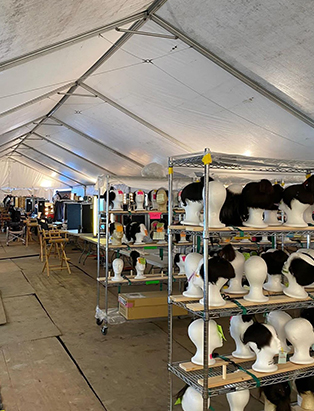
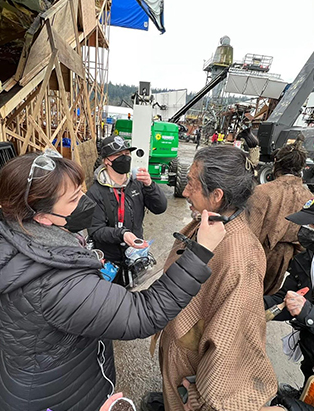
You’ve worked on a variety of projects, from Supergirl and Altered Carbon to Pachinko and Shōgun. How did your first major TV or film job come about?
It took a lot—and I mean a lot—of time and dedication to work up to landing a makeup artist job on a major production. I was lucky to have Amanda McGowan as a mentor. She taught me how to be a great assistant: how to manage time, organise the clerical side, lead a team, and grow as an artist. There were definitely some hard times, but I’m so thankful she helped shape me into who I am today.
What is a typical day in your life like when working on a production?
Every show is different. No two days are ever the same. The hours can vary, but I usually start early. A 4am or 5am call time is common. The teams’ arrival times are staggered depending on the schedule of the cast. We begin by discussing what’s happening on the call sheet that day, and any changes to the cast’s appearance; does an actor need dirt, sweat, or blood? We confirm episode continuity and any notes from the Head of Department.
Often, we have multiple units running, so the HOD will coordinate who’s going where, with which cast and what supplies they’ll need. Once the cast arrives, we process them and continue touching them up as needed throughout the shoot. We carry out all the notes from the HOD while maintaining continuity and making sure the actors look camera-ready all day. After 12 or so hours of shooting, the crew wraps, we clean up the cast, and then head home. Hopefully, I’ve remembered to grab some lunch in there!
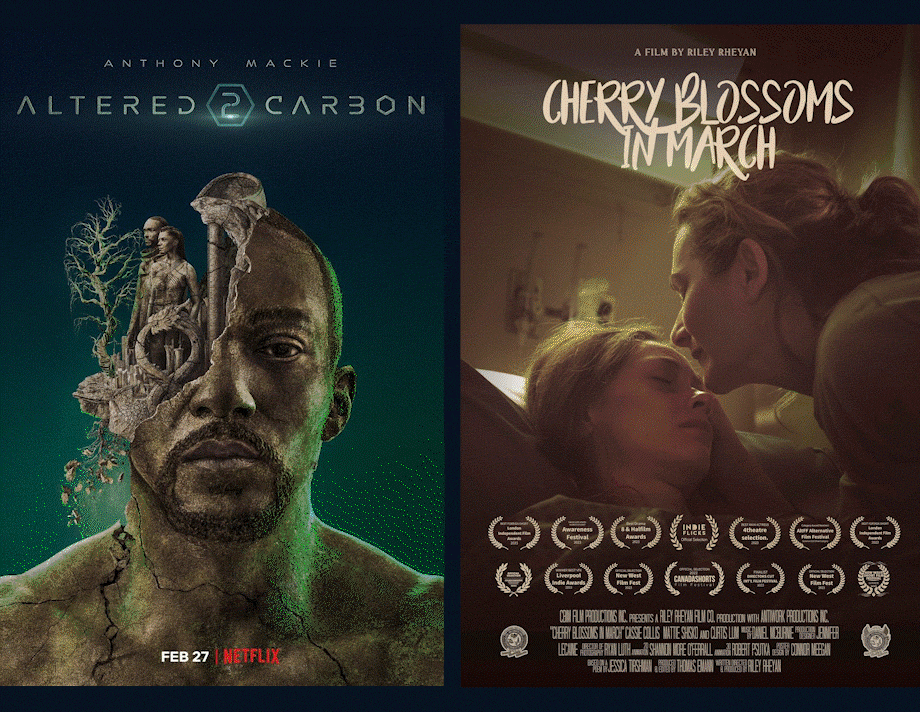
“Jenna Kuchera, the teacher from my fashion module, asked me to help out on a film that she was working on. Everything clicked on my first day 'on set'. I knew I wanted to work in film.”
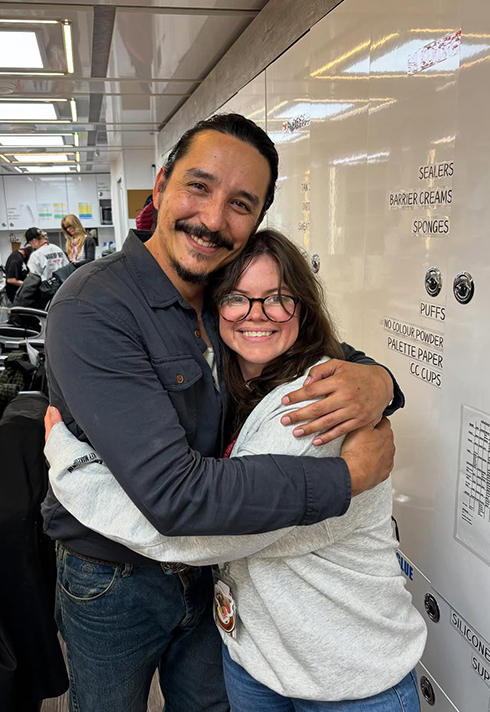
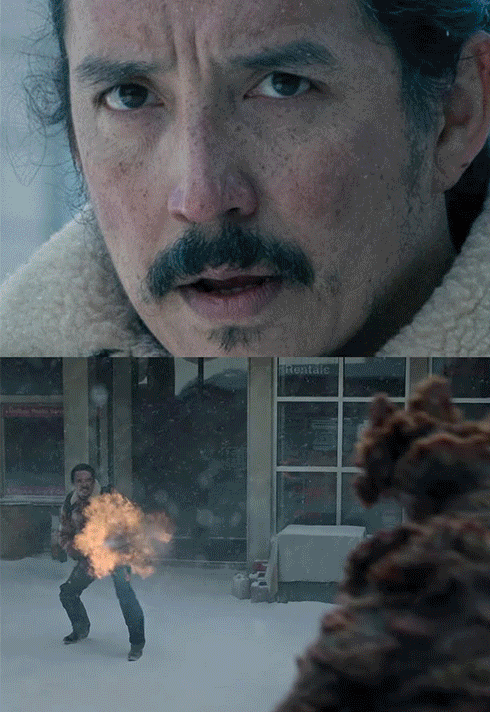
What was it like transitioning from Assistant Makeup Artist roles to Key Makeup Artist and Department Head positions?
I worried about making the wrong decisions—and sometimes I did—but I always try to learn how I can do better next time. I’m lucky to have an amazing support system around me. We all want each other to succeed, and we lift each other up.
What do you love most about your work? On the flip side, what’s the most challenging aspect of the job?
The people. Everyone brings their own unique skill set, style, and personality. It’s incredible to see all of that come together to create something bigger than any one person. I love collaborating, hearing ideas, and working together to bring something to life. The hardest part is being away from my family. Sometimes I won’t see anyone outside of work for an entire week, and by the weekend, I’m too tired to catch up with friends. I often don’t see them until I wrap a show—or every few months.
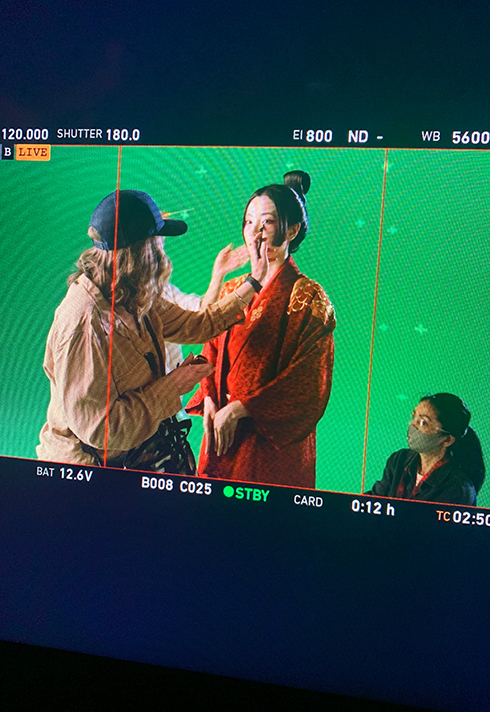
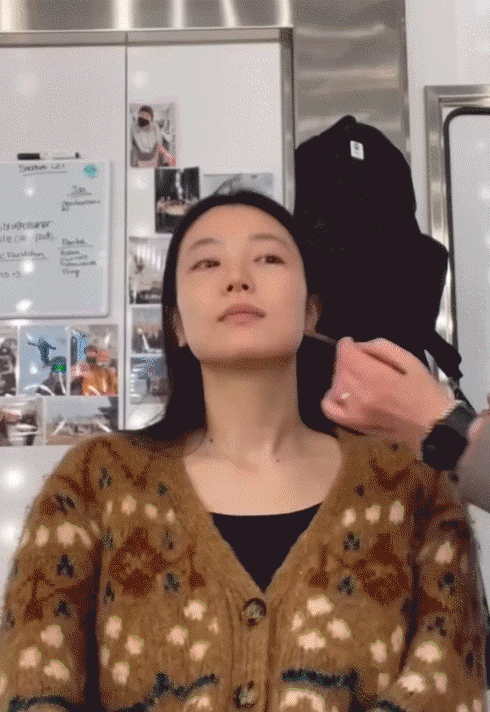
How do you approach character makeup design, especially for period pieces like Shōgun or Pachinko?
Rebecca Lee is an incredible makeup designer. For these projects, we dove into research together, which is one of my favourite parts of the job. Rebecca speaks with the director and creative producers to understand their vision for each character. She also meets one-on-one with the cast to hear their thoughts and may do some test makeups based on those conversations. She’s extremely detail-oriented and talented—she really brings the characters to life. I’m just fortunate to be part of her team and help support that vision.
Do you see yourself mentoring or teaching future makeup artists one day?
Absolutely. I’m always happy to share whatever knowledge or experience I have. Mentorship is so important in this industry. I was mentored by artists like Rebecca Lee, Amanda McGowan, and fellow Global Makeup grad Danielle Fowler, and hopefully, someday I’ll be mentioned by a young makeup artist in their interview!
Are there any dream projects or genres you’d love to work on?
I just love a great story. Whatever I can do to help tell a powerful story—I want to be part of that. That said, working on Jurassic Park or Harry Potter would definitely be a childhood dream come true.
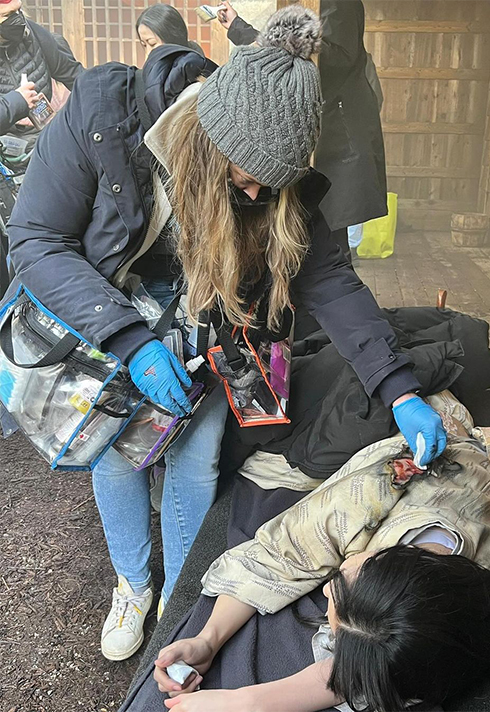
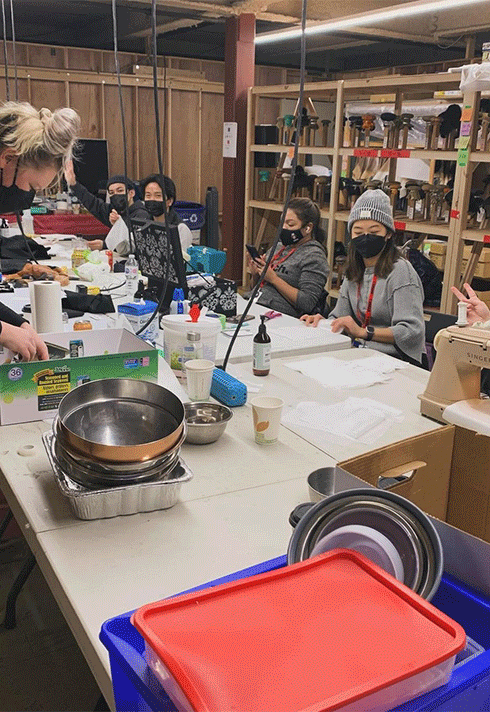
“It might feel uncomfortable putting yourself out there, but eventually, you’ll connect with someone who needs help and is willing to take a chance on you.”
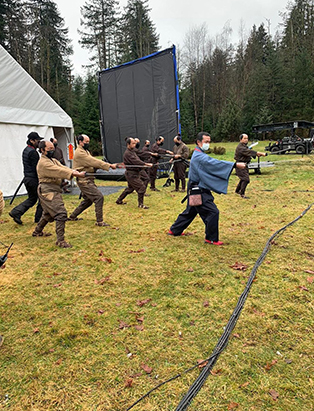
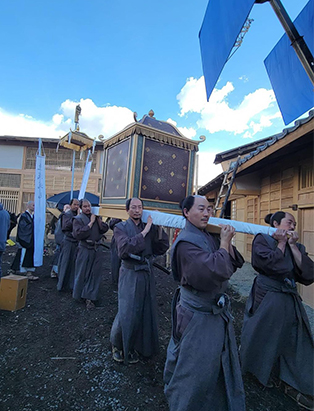
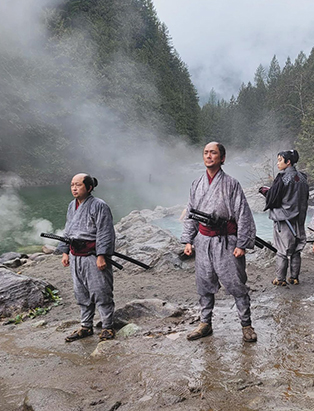
What does success mean to you? Has your definition of success changed over the course of your career?
Success to me is about consistently getting better at the craft, improving at the job, and contributing to a meaningful story while supporting the people around you. It’s really special to get recognition from your peers, especially when a show resonates with people, but for me, it’s the little steps to get better every day that truly drive me.
What advice would you give to aspiring makeup artists hoping to break into film and television?
Find out what’s currently filming and reach out to the Heads of Department to let them know you’re eager to work. It might feel uncomfortable putting yourself out there, and you won’t always hear back, but eventually, you’ll connect with someone who needs help and is willing to take a chance on you.
